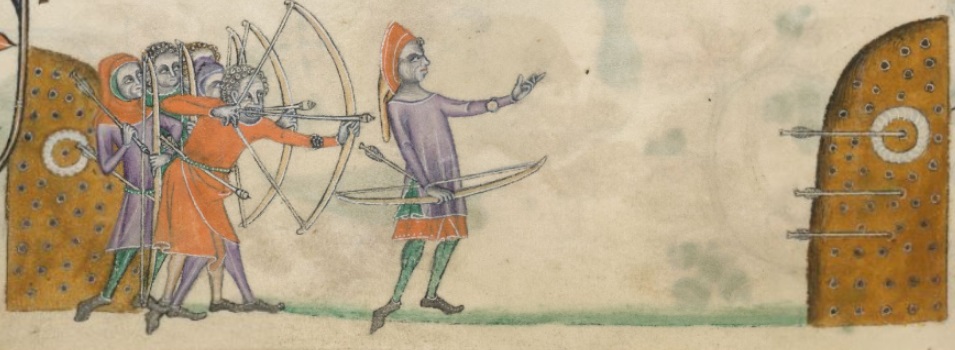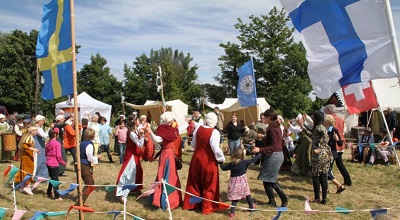
Having Fun

Introduction
Even in summer, people did not work all the time in the Middle Ages In fact, by the end of the Middle Ages, they celebrated many holy days (from which we get our word 'holidays') – in some places more than a hundred a year!
Study these Sources, then answer the question sheet by clicking on the 'Time to Work' icon at the top of the page.
Links:
The following websites will help you research further:
Medieval Fun:
1 A 16th century peasant wedding feast
This was painted by the Dutch artist Maerten van Cleve (1520-1570), so it is not English, and it is not 'medieval' (can you spot the women wearing the ruff who gives the game away!)
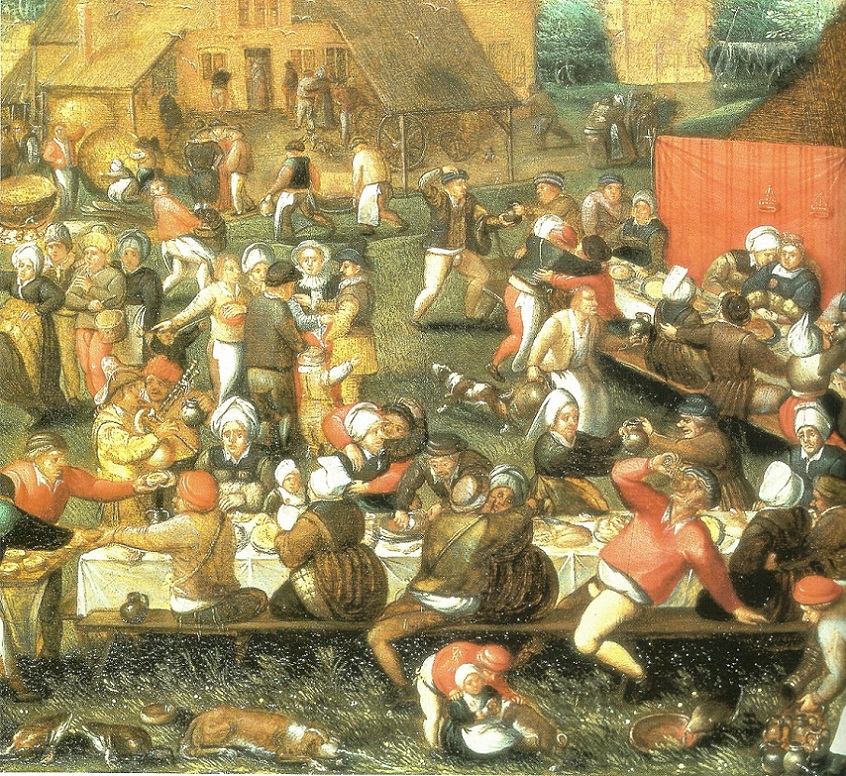
Debate
OK. At this point I am going to be contentious.
I am going to suggest that we have a completely mistaken impression of medieval fun. We go to events which we call 'medieval fayres' (e.g. the picture, right), and we watch depictions of medieval fun in films and on the TV – but I would claim that they are not medieval fun at all ... are they not really 21st century fun plus dressing up?
My argument would that, if we were able to go back in time and experience REAL medieval fun, we would be horrified and revulsed.
Most medieval 'holidays' were tightly controlled by the Church, and included religious events such as long church ceremonies, processions and passion plays.
And the other medieval 'fun', I would suggest, ww would find distressing, because it involved many things which we have spent seven centuries banning – baiting animals, mocking the sick and disabled, attacking immigrants and Jews etc. There was a kind of 'football' in the Middle Ages – it was an especially violent kind of rule-free 'British Bulldog' where two rival sets of villagers beat each other up, trying to get the 'ball' to a specified goal.
What do you reckon? Study these pictures from the Luttrell Psalter, then use the question sheet to guide you to your own opinion.
2 Fourteenth Century 'fun' – pictures from the Luttrell Psalter
The pictures below, from The Luttrell Psalter (written about 1340), show pastimes on the estates of Sir Geoffrey Luttrell, an English knight:
a.
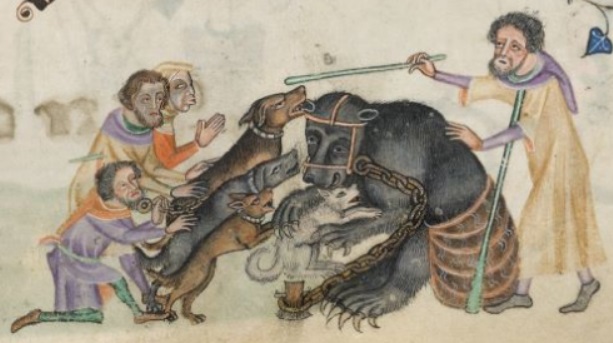 b.
b.
c.
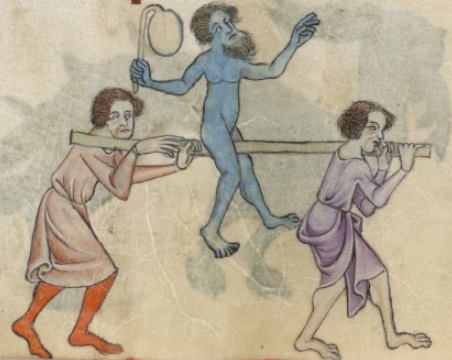 d.
d.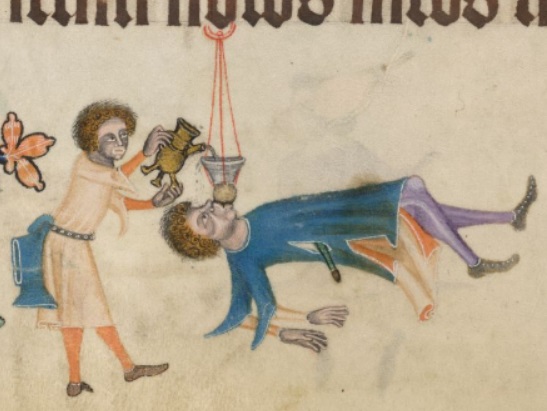
e.
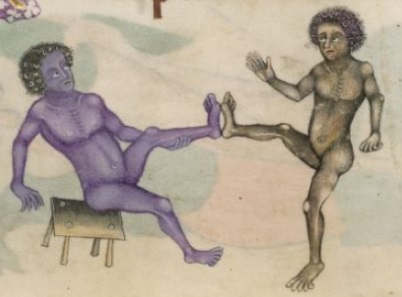 f.
f.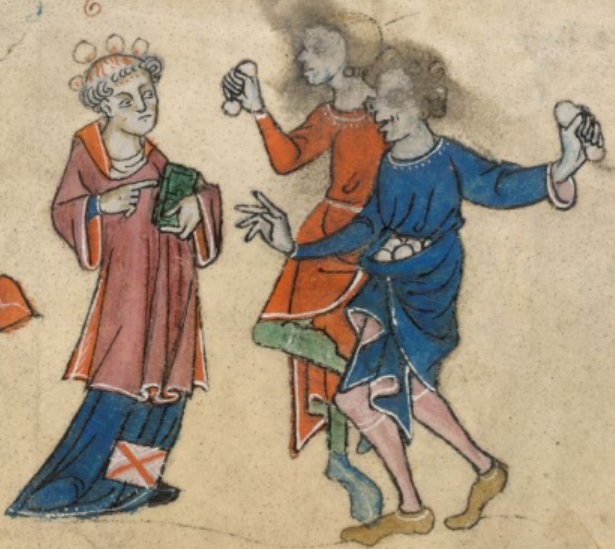
g.
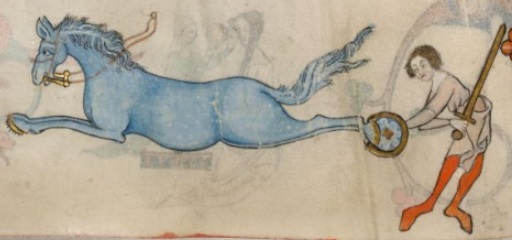 h.
h.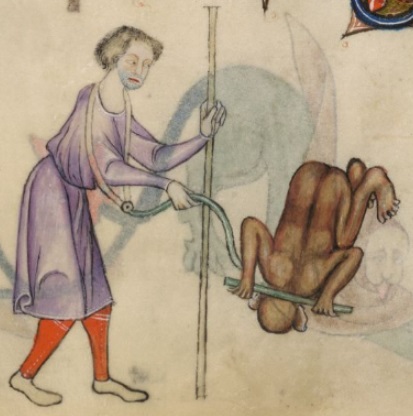
i.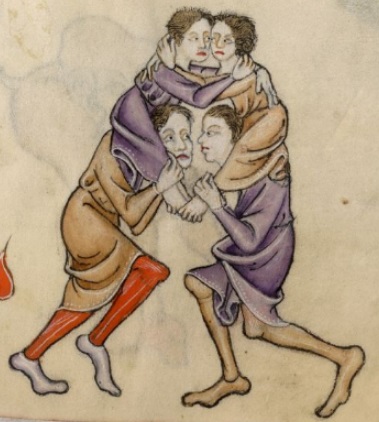 j.
j.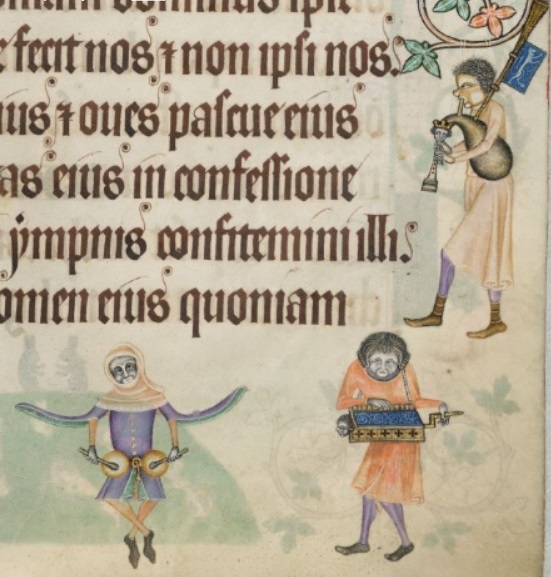
This picture of villagers practising archery at the local butts is often included as an example of a medieval pastime. It was not at all; every English man was required by law to practice archery on a Sunday, so that he could be called up if needed into the army.
